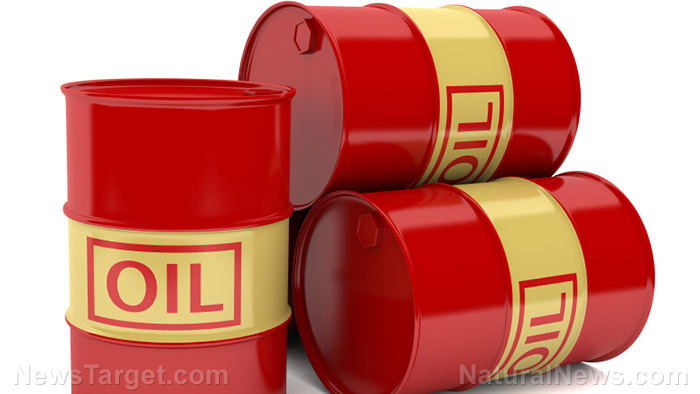
Saudi Arabia may increase the price of its crude oil as the repercussions of the Russia-Ukraine war are felt throughout global markets.
An assessment by Bloomberg found that state-owned petroleum company Saudi Aramco may raise the selling price of its flagship Arab Light crude to $5 a barrel in Asia. The news outlet added that the price increase could apply for oil cargoes scheduled for May 2022. Saudi Arabia is the world's largest exporter of oil and is a founding member of the Organization of the Petroleum Exporting Countries (OPEC).
The price increase for Arab Light crude came amid a general spike in oil prices in the first quarter of 2022, the highest increase since 2008. The Russia-Ukraine war, which commenced in February, exacerbated high oil prices already lifted by expanding global demand and fast-selling stockpiles.
Meanwhile, Brent futures prices ended the Mar. 29 trading day at almost $113 per barrel. During the early days of the Russia-Ukraine war, prices almost hit $140 – the highest since 2008 – but have subsequently stabilized. (Related: Rising gas prices to hit $7 a gallon if crude oil cost spikes and tension between Russia and Ukraine escalates.)
The onset of the Russia-Ukraine war, the biggest conflict in Europe since World War II, has lowered demand for Russian oil. It has also inadvertently reduced demand for petroleum coming from East Asian suppliers such as Japan and South Korea.
This has proven to be a golden opportunity for Saudi Arabia and other suppliers in the Middle East to fill in the void left by lowered demand for Russian oil. Meanwhile, countries such as China and India have committed to purchasing Moscow's excess barrels.
Aramco's announcement of a price hike also comes amid a new outbreak of the Wuhan coronavirus (COVID-19) in China. The world's top oil importer has imposed lockdowns to curb the virus's spread as part of its zero-COVID policy.
Given this situation, traders in Asia are closely monitoring the country as it poses a serious risk to oil demand. As it is still unknown how long the COVID-19 lockdowns would remain in place, some energy consultants have already reduced estimates for crude oil consumption in China.
Saudi Arabia, other OPEC nations to discuss production plans
Aramco did not respond to an email from Bloomberg seeking comment over the potential price hike. The state-owned oil firm typically releases official Arab Light prices in the first five days of the month.
Riyadh is set to join other oil-producing countries who are non-OPEC members – including Russia – in a March 31 meeting. The OPEC+ meeting, which includes the 13 OPEC members and 10 other oil-producing nations, will set production policy for the group. But ahead of the conference, OPEC members have signaled that they still see no need to adapt supply plans.
A March 30 posting on the bloc's website mentioned that the OPEC daily basket price of crude oil stood at $110.05 per barrel on March 29. Based on OPEC Secretariat calculations, the OPEC Reference Basket of Crudes (ORB) stood at $113.39 per barrel – almost the same as Brent futures.
The ORB comprises of 13 crude oil from different OPEC member countries, namely: Algeria, Angola, Congo, Equatorial Guinea, Gabon, Iran, Iraq, Kuwait, Libya, Nigeria, Saudi Arabia, United Arab Emirates and Venezuela.
The increases in crude oil prices is only the tip of the iceberg. Scott Sheffield, CEO of shale oil company Pioneer Natural Resources, warned that bans on Russian oil could easily send crude prices soaring between $150 and $200.
"The only way to stop [Russian President Vladimir] Putin is to ban oil and gas exports. [But] if the western world announced that 'we're going to ban Russian oil and gas,' oil is going to go [up] to $200 a barrel, probably – $150 to $200 easy," he told the Financial Times in a March 4 interview.
Visit Inflation.news to read more stories like this.
Watch David Morgan explaining why oil prices are high in the video below.
This video is from The Morgan Report channel on Brighteon.com.
More related stories:
US oil prices rise to a 7-year high as conflict between Russia and Ukraine continues.
US crude oil surges to 13-year high of $130 a barrel as Russia-Ukraine war escalates.
Sources include:
Please contact us for more information.














